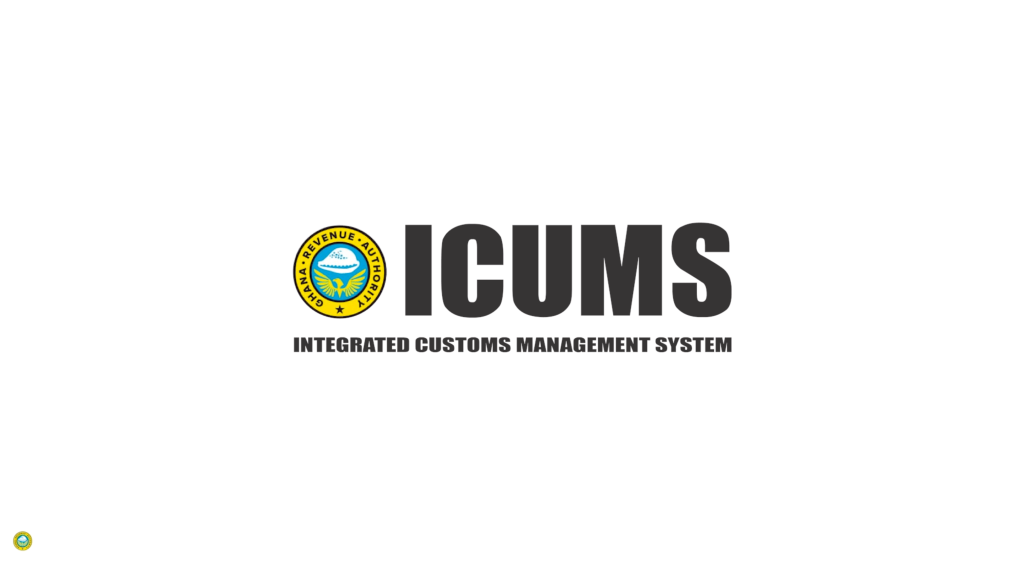The Importers and Exporters Association of Ghana stands before you today not only as a voice for our members but as a beacon of hope for the future of trade facilitation in our beloved nation. We are here to address the ongoing discourse surrounding the Integrated Customs Management System (ICUMS), a system that has, since its inception, revolutionized customs operations in Ghana. While we acknowledge the challenges raised in recent petitions, we also recognize the transformative milestones achieved by ICUMS. We urge all stakeholders to adopt a constructive approach to addressing these challenges, rather than succumbing to the growing menace of discarding systems that have shown immense potential for our nation’s progress.
ICUMS, operated by Ghana Link Services Limited in collaboration with the Ghana Revenue Authority (GRA), was introduced to replace the previous Ghana Customs Management System (GCMS) and the Westblue system. Its implementation was a bold step toward modernizing Ghana’s customs processes, aligning them with global standards, and enhancing trade facilitation. Today, we celebrate the remarkable achievements of ICUMS, even as we advocate for continuous improvement to address the concerns raised by stakeholders from time to time.
Milestones of ICUMS: A Testament to Progress
Since its rollout, ICUMS has delivered significant benefits to Ghana’s trade ecosystem. Let us take a moment to reflect on these achievements:
1. Streamlined Customs Processes: ICUMS has simplified and automated customs procedures, reducing the time and cost of clearing goods at our ports. The system has reduced the need for manual documentation, minimized human errors, and enhanced the overall efficiency of customs operations.
2. Enhanced Revenue Mobilization: By integrating various modules into a single platform, ICUMS has improved transparency and accountability in revenue collection. The system has significantly reduced revenue leakages, ensuring that the government collects the rightful taxes and duties to support national development.
3. Improved Trade Facilitation: ICUMS has introduced a more user-friendly interface for importers, exporters, and freight forwarders. The system’s ability to provide real-time updates on the status of consignments has empowered businesses to plan their operations more effectively, reducing delays and uncertainties.
4. Alignment with International Standards: ICUMS was designed to align with global best practices, including the World Customs Organization (WCO) SAFE Framework of Standards. This alignment has positioned Ghana as a leader in trade facilitation within the West African sub-region, enhancing our competitiveness on the global stage.
5. Job Creation and Capacity Building: The implementation of ICUMS has created numerous job opportunities for Ghanaian youth, particularly in the areas of IT support, logistics, and customer service. Additionally, the system has facilitated capacity-building initiatives for customs officers and other stakeholders, equipping them with the skills needed to navigate the digital landscape of modern trade.
6. Reduction in Corruption: By automating key processes and minimizing human intervention, ICUMS has significantly reduced opportunities for corruption and rent-seeking behaviors that plagued previous systems. This has restored confidence in our customs operations and improved Ghana’s reputation in the eyes of the international community.

Challenges as Opportunities for Growth
While we celebrate our milestones, the Importers and Exporters Association of Ghana acknowledges the challenges highlighted by stakeholders from time to time. In particular, we address the issue raised in the recent petition regarding the implementation of the Unique Consignment Reference (UCR) in ICUMS and Ghana as a whole since the UCR concept was adopted.
The petitioner expressed concerns about gaps in integration between the UCR and international trade systems, as well as unsubstantiated allegations of internal sabotage. While the petitioner’s perspective on UCR implementation might reflect an ideal scenario, it is essential to recognize the realities of international trade. Each country is sovereign, and no single UCR system can automatically share data across borders without bilateral agreements. The suggestion that there is a central global system for data retrieval is a misconception. Data sharing between nations is governed by bilateral agreements, which are often complex and time-consuming to establish.
The concerns raised regarding UCR implementation may hold merit in theory but must be viewed within the context of global realities. Each sovereign nation has its own legal frameworks governing data privacy and sharing, which must be respected and adhered to. While striving for perfection is admirable, Ghana, like all nations, must adopt practical and realistic policies to foster progress.
It is crucial to emphasize that the concerns surrounding the UCR implementation are not specific to ICUMS but are instead matters of government policy. As such, addressing these challenges requires a broader policy dialogue at the governmental level.
A Call for Constructive Engagement
On the issue of the general performance of ICUMS in recent times away from the UCR matter, as an association that represents the interests of importers and exporters, we understand the frustrations that come with some disruptions caused by changes in IT systems, particularly when such changes coincide with shifts in political leadership. However, we must resist the temptation to throw away the baby with the bathwater. Instead, we call for constructive engagement among all stakeholders to address any challenges and build on the successes of ICUMS.
We commend Ghana Link Services Limited for its commitment to improving the system and urge the company to take the concerns raised seriously. We also call on the government, through the Ministry of Trade and Industry and the Ghana Revenue Authority, to provide the necessary support and oversight to ensure that ICUMS continues to evolve in line with international best practices.
Recommendations for Moving Forward
To ensure the sustained success of ICUMS, we propose the following recommendations:
3. Enhance Stakeholder Engagement: We call for greater collaboration between Ghana Link and industry stakeholders, including importers, exporters, and freight forwarders. Regular consultations and feedback mechanisms will ensure that the system evolves to meet the needs of all users.
4. Invest in Capacity Building: Continuous training for customs officers and other stakeholders is essential to maximize the benefits of ICUMS. We recommend the adoption of the WCO Data Model and other best practices to improve knowledge and skills in handling UCR and detecting fraudulent activities.
5. Leverage Technology for Automation: To minimize human interference and enhance efficiency, we encourage the use of advanced technologies such as artificial intelligence and blockchain to automate key processes within ICUMS.
A Plea for Patience and Support
Ladies and gentlemen, the journey toward a fully integrated and efficient customs management system is a marathon, not a sprint. ICUMS has already brought us closer to the finish line, and we must not abandon it midway. Let us remember that every great system evolves over time, and ICUMS is no exception.
We appeal to the hearts and minds of all Ghanaians to see ICUMS as a work in progress—a system that is evolving to meet the demands of a dynamic global trade environment. Let us encourage Ghana Link to fix the problems rather than succumb to the growing menace of discarding systems that have shown immense potential for our nation’s progress.
Together, we can build a customs management system that is not only efficient and transparent but also a source of pride for Ghana. Let us give ICUMS the support it needs to continue delivering on its promise of transforming trade facilitation in our beloved nation.












